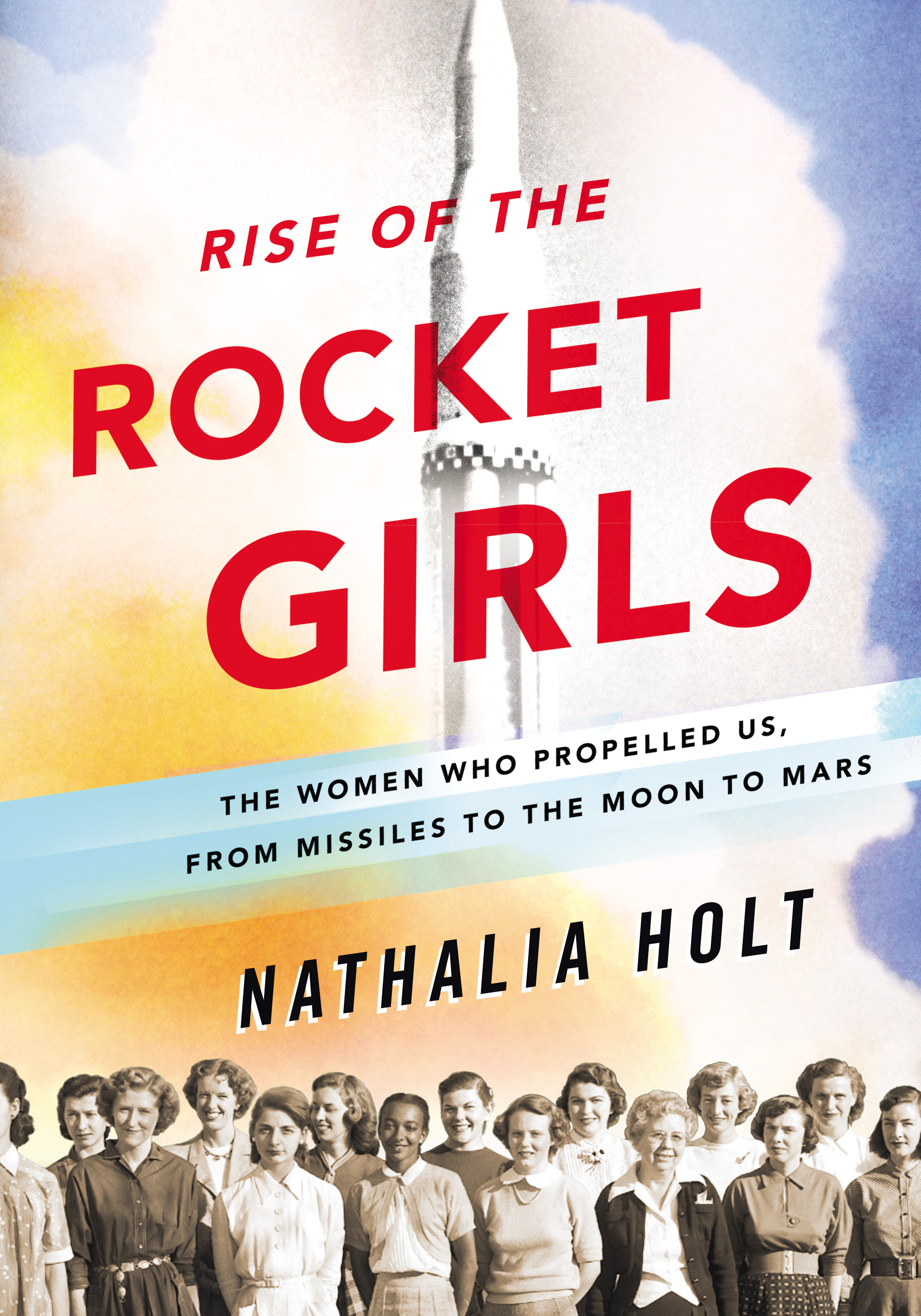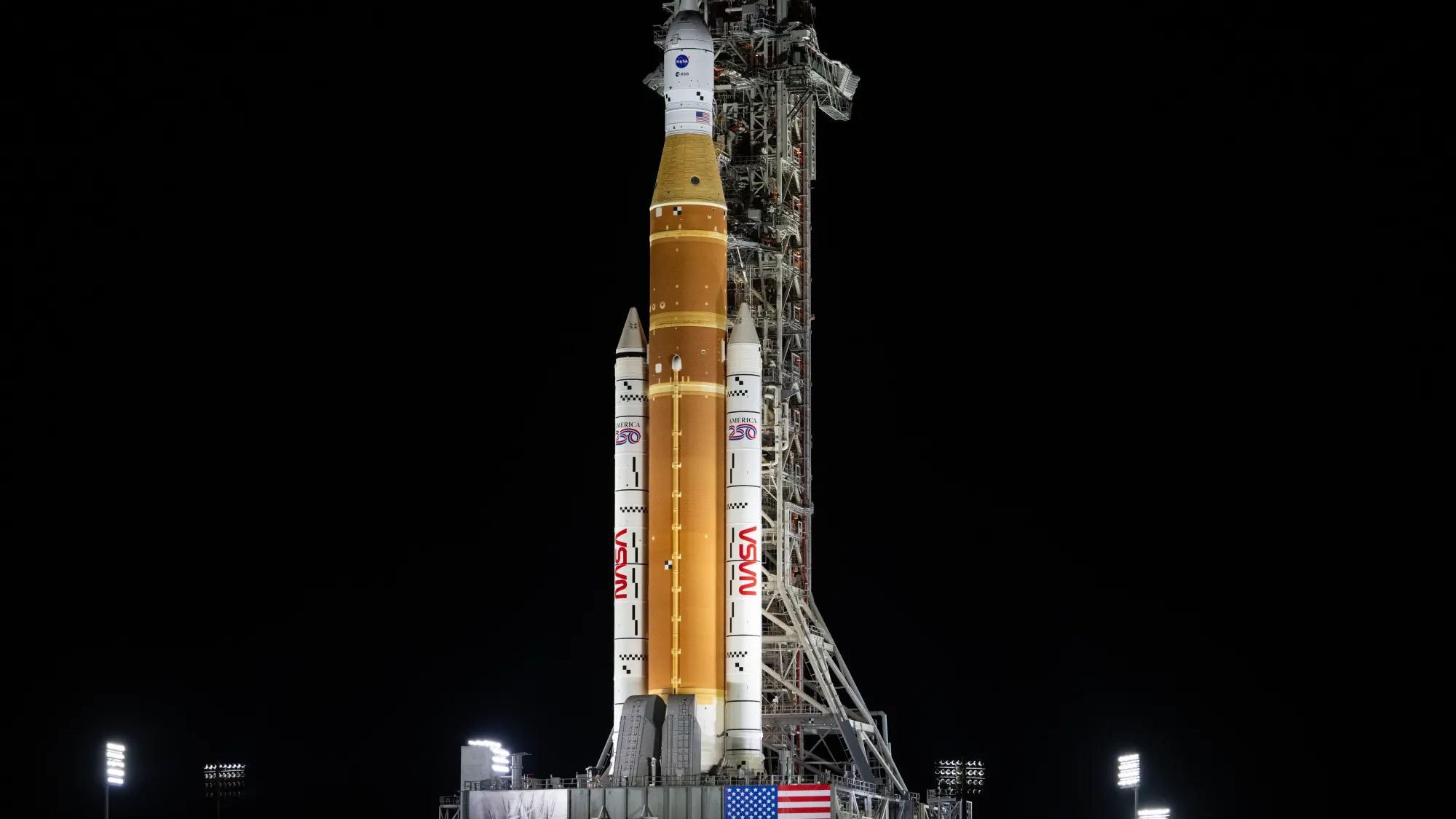'Rocket Girls' Blasts Off in Washington DC

Author Nathalia Holt signs her new book on early rocket history with advice to women who aspire to become space scientists:"Reach for the stars!"
In partnership with Space.com, landmark Washington, D.C., bookseller Politics and Prose hosted Holt's book lecture at the restaurant Busboys and Poets on April 20. At the event, Holt spared no superlatives in describing her feelings when she first learned about the little-known women who formed the backbone of early NASA.
Her new book, "Rise of the Rocket Girls" (Little, Brown and Co., 2016), follows the women —as many as 200 —who worked as "computers" in the 1940s and 1950s. These female mathematicians computed with a pen, pencil and slide rule to calculate trajectories and designs for early rockets. But despite their vital role in space history, these women's contributions to putting America in space were ignored for more than half a century, Holt said.
Viewers can watch Holt's entire lecture in a new video from Politics and Prose. [Giant Leaps: Biggest Milestones of Human Spaceflight]
At the lecture, Holt told an audience of enthusiastic space fans she was "shocked" that so many women mathematicians and engineers in those days were never given credit for their hard work in building the space program. Indeed, without these women, rocket pioneers such as Wernher von Braun could not have helped the United States catch up with the Soviet Union after the launch of its first satellite, Sputnik, and later put a man on the moon.
For her book, Holt tracked down and interviewed many of those "rocket girls," most in their 80s, to get the real story of their work in the evolving missile and space effort after World War II at NASA's Jet Propulsion Laboratory (JPL) in Pasadena, California.
With those interviews, along with black-and-white photos and details from JPL's archives, Holt pieced together a remarkable story of smart, tenacious, underpaid and overworked women who could work through the complex computations necessary to put the first U.S. space satellite, Explorer, successfully into orbit.
Breaking space news, the latest updates on rocket launches, skywatching events and more!
Holt's book paints a portrait of a group of women who were patriotic, loyal, humble and sweet— but also incredibly intelligent, tenacious and hardworking. Most had earned advanced degrees in mathematics, physics or engineering, and gravitated to JPL because it had a "progressive hiring attitude" toward women at a time when only 25 percent of women worked outside the home. Holt's research showed those women pioneers were paid less than their male counterparts and were never given official credit by the government for their hard work.
Yes, it was sexism — plain and simple, Holt said.
In fact, on the 50th anniversary of JPL and the Explorer launch, NASA did not even invite most of the women to the gala celebration. Nonetheless, the women were deeply appreciative for the chance to be part of such a historic endeavor, Holt added.
It's perhaps sad, Holt said, that it took so long for these women space pioneers to be recognized. But hopefully, their uplifting story will inspire women today to persevere as scientists, engineers, physicists and rocket designers in the effort to put men and women on Mars, she added. Men continue to dominate the fields of study needed for humans to explore space, although a lot more women today are taking part in many facets of space travel, including designing new spacecraft, flying on missions and searching for extraterrestrial life, Holt noted.
"My hope is, this will inspire young women today to go into science," Holt said. If her hopes come true in this 21st century of mind-boggling advances in our understanding of the universe, no doubt she will be happy to hear what the first person to step onto Mars may say: "This is one small step for man and woman, one giant leap for humankind."
Follow us @Spacedotcom, Facebook and Google+. Original article on Space.com.

